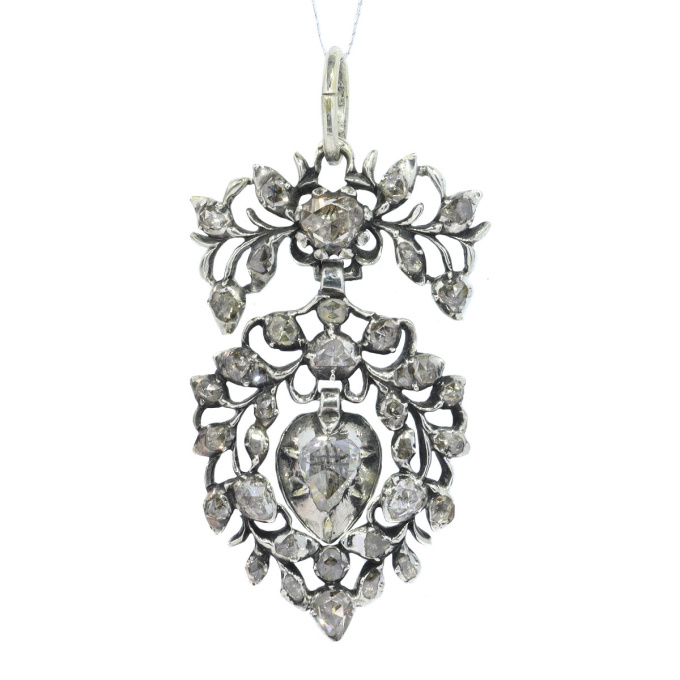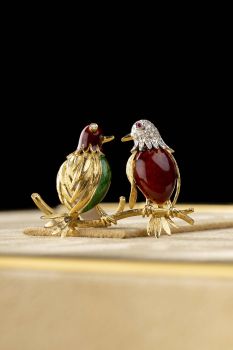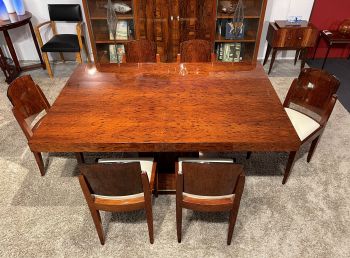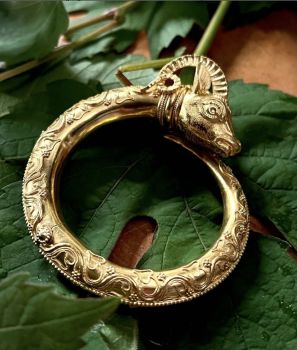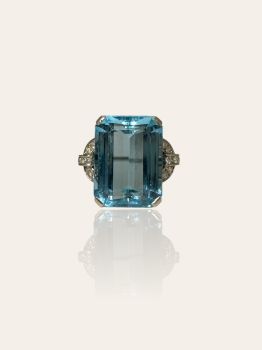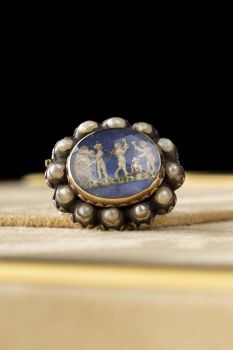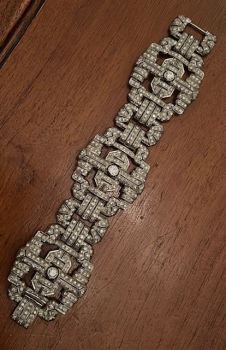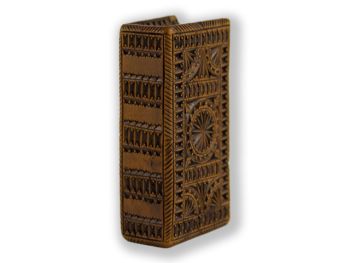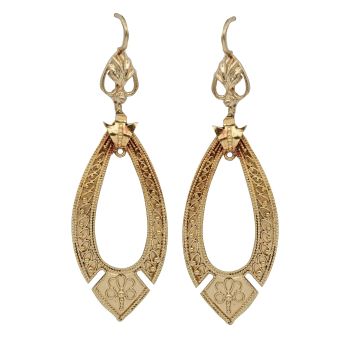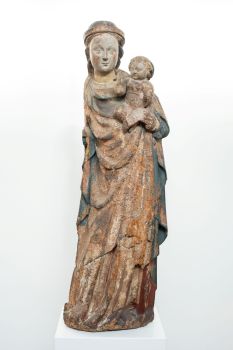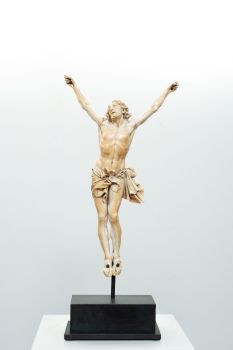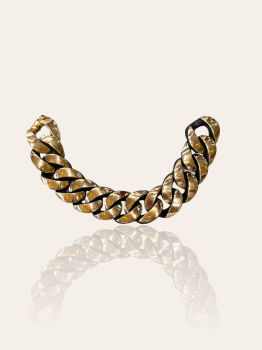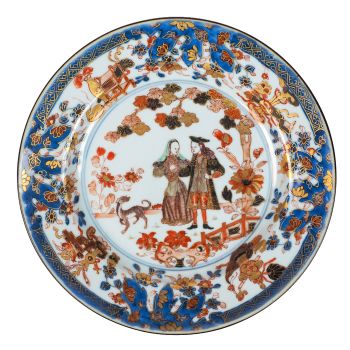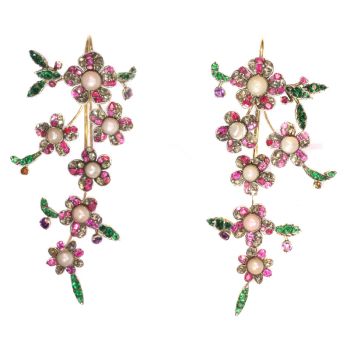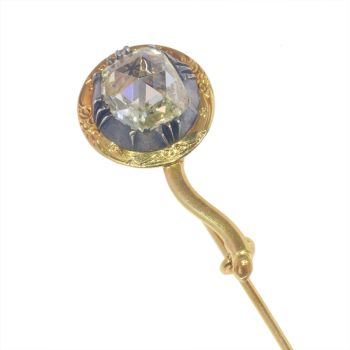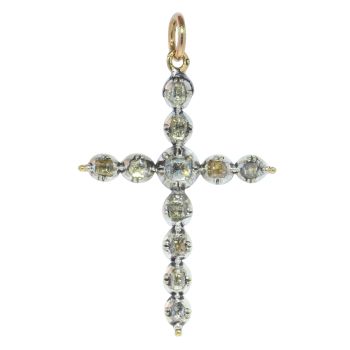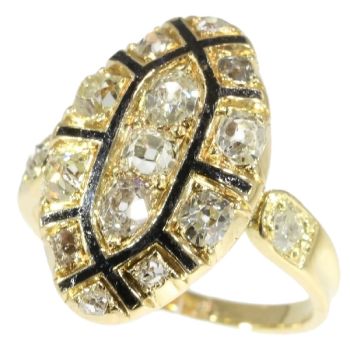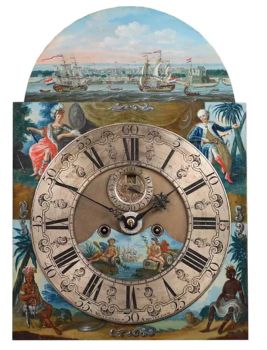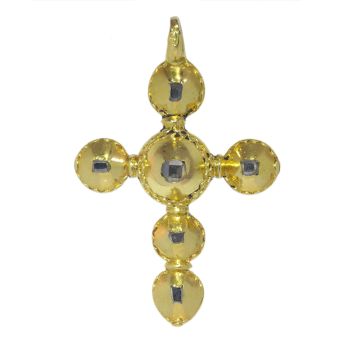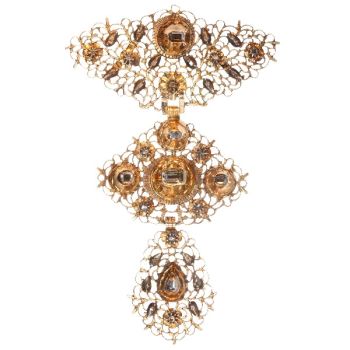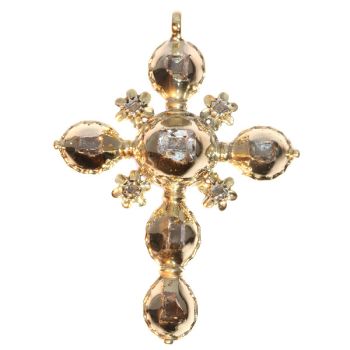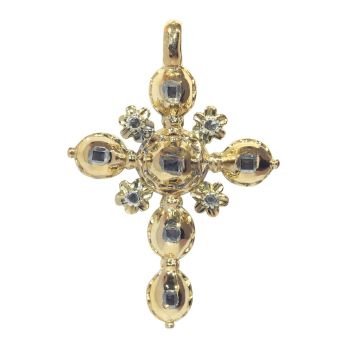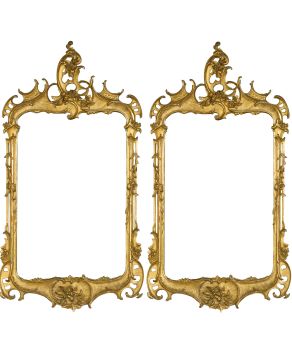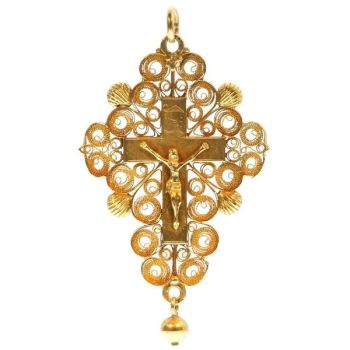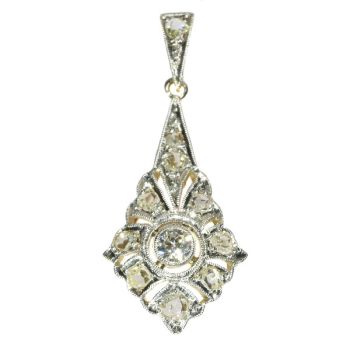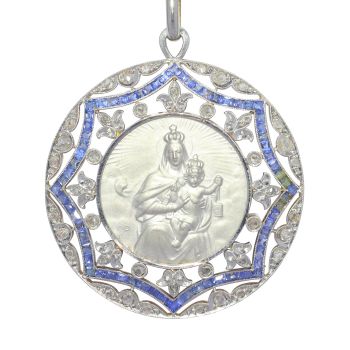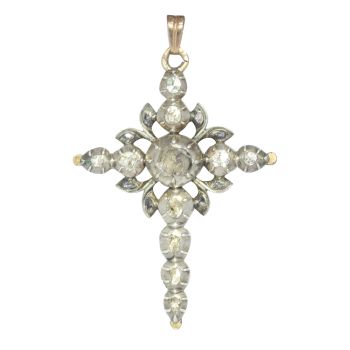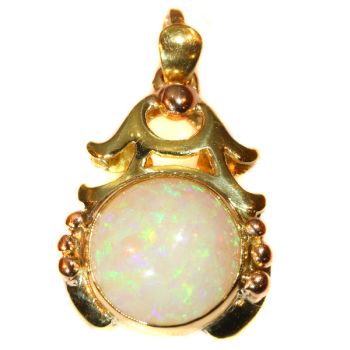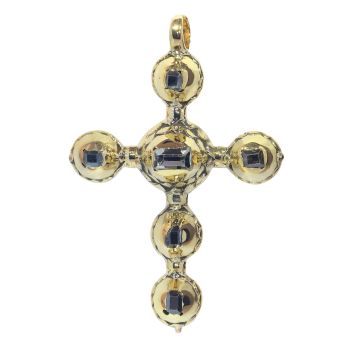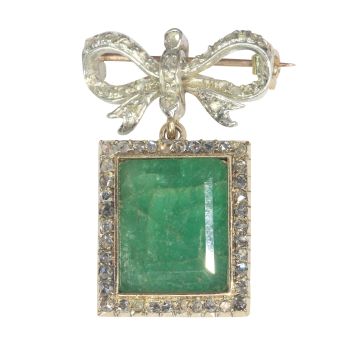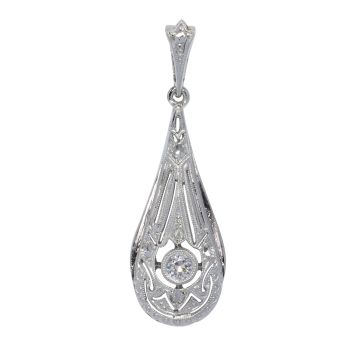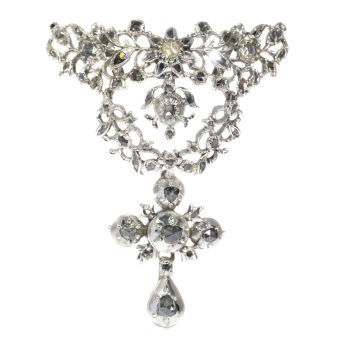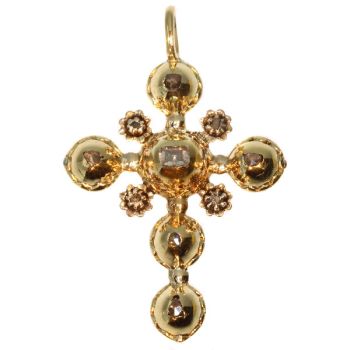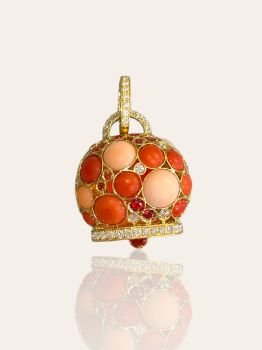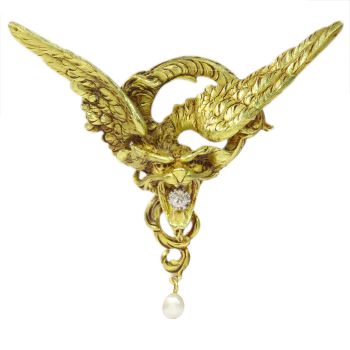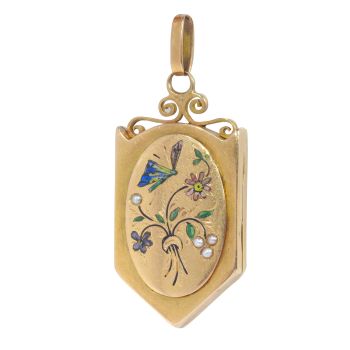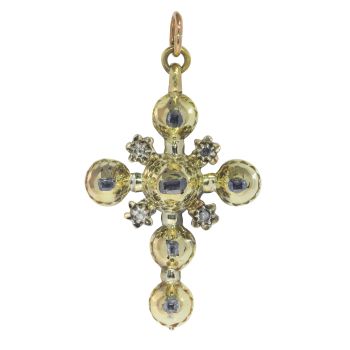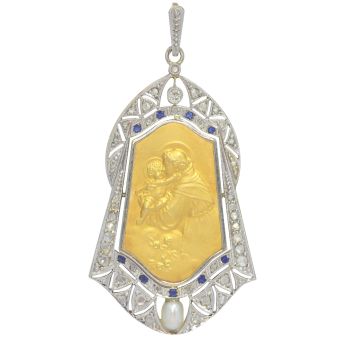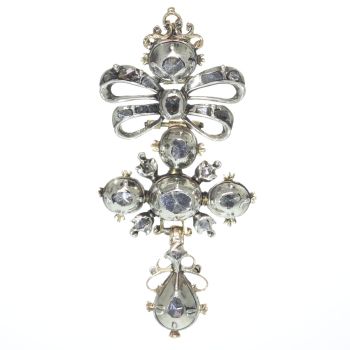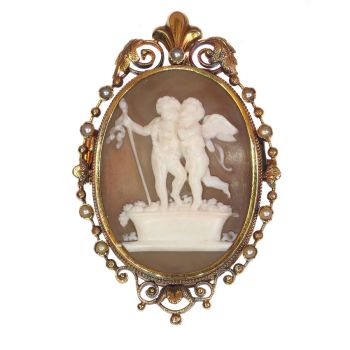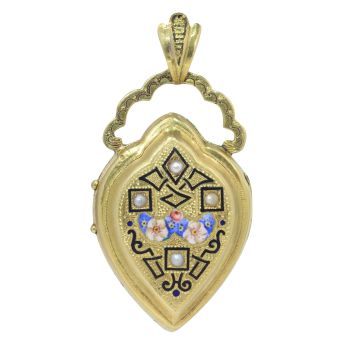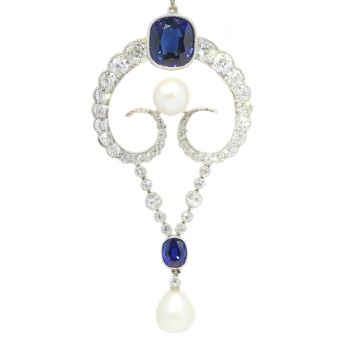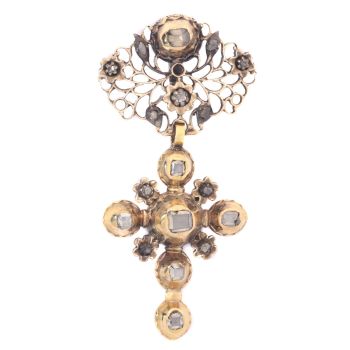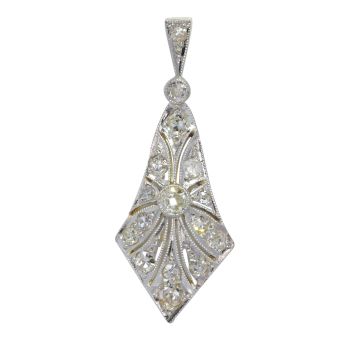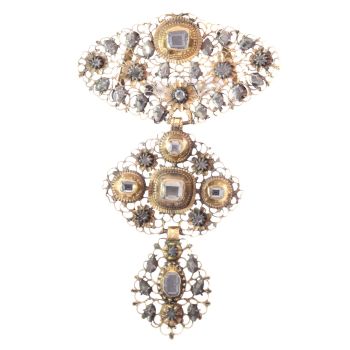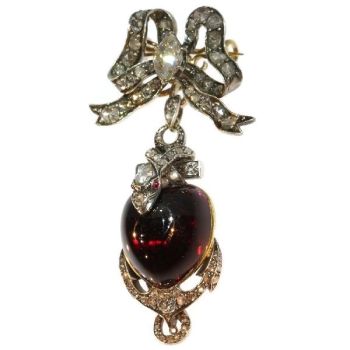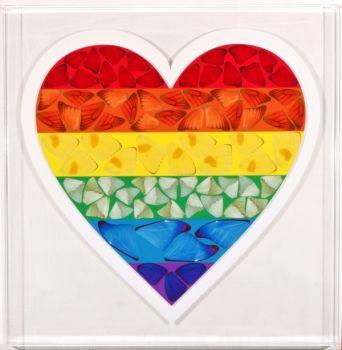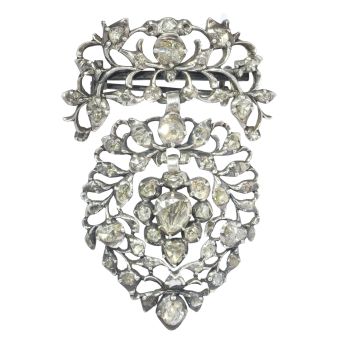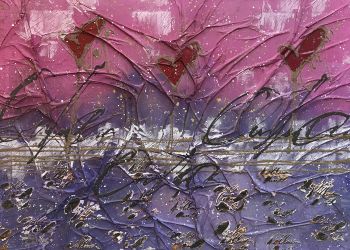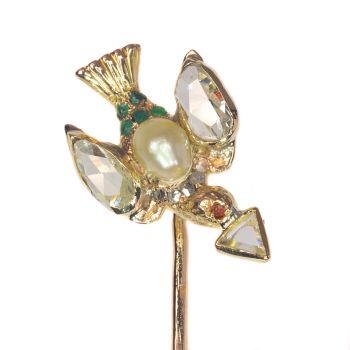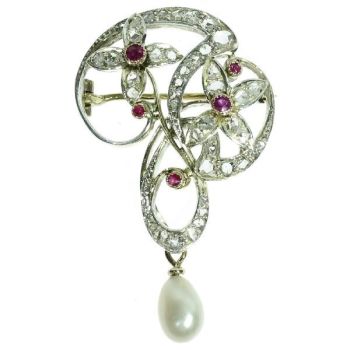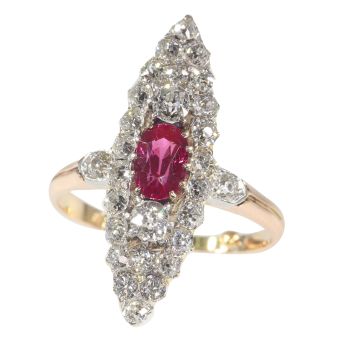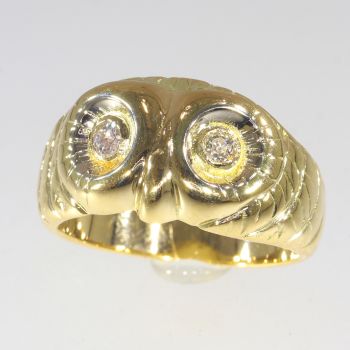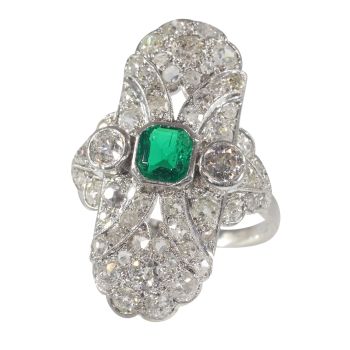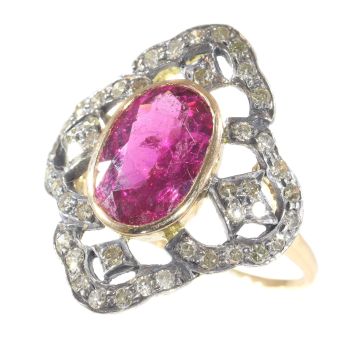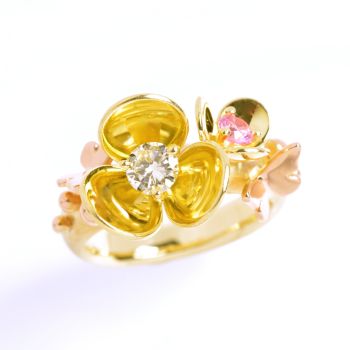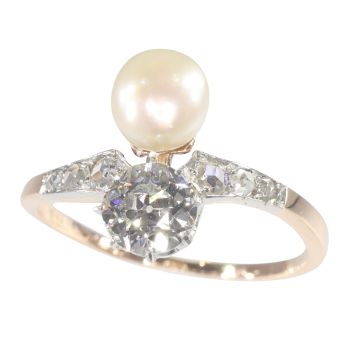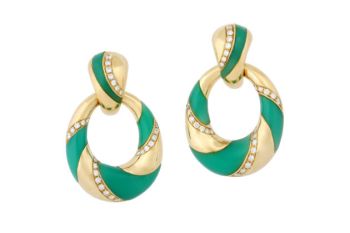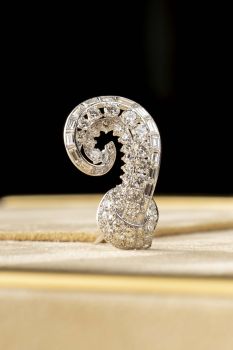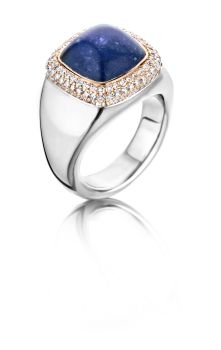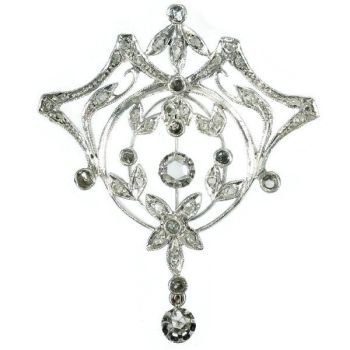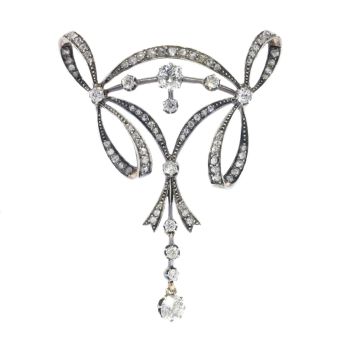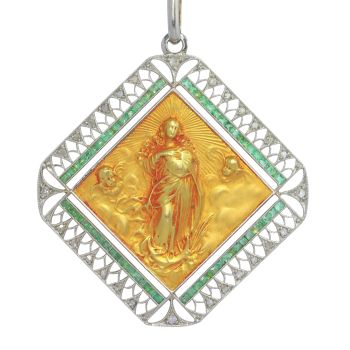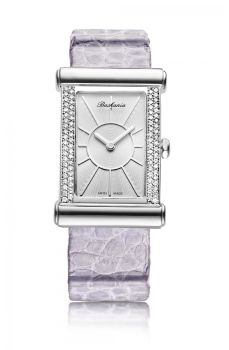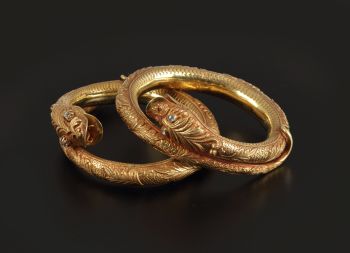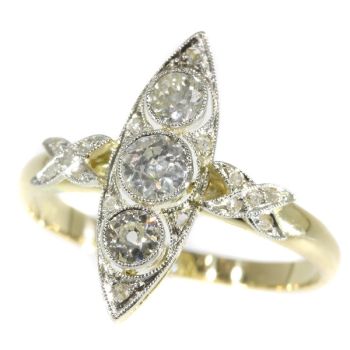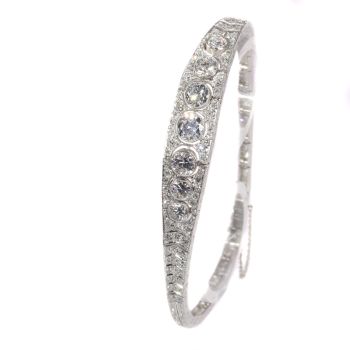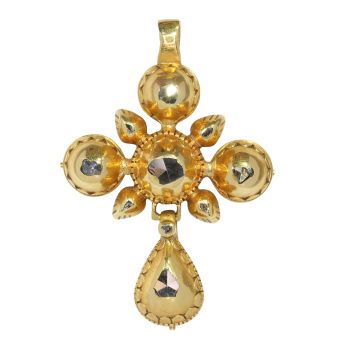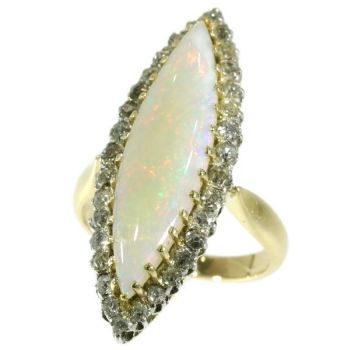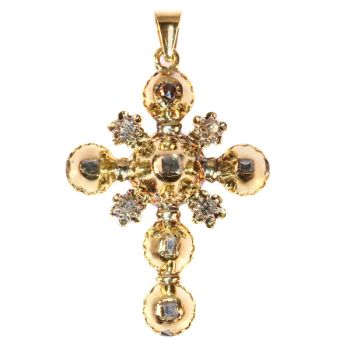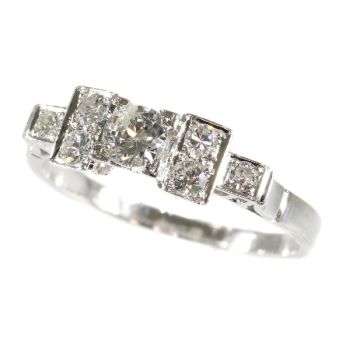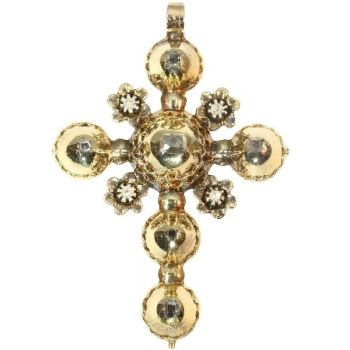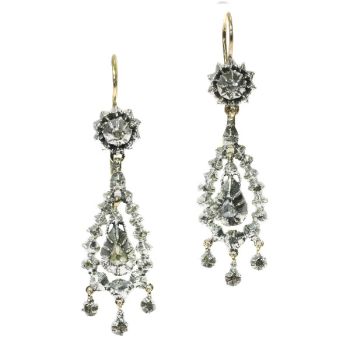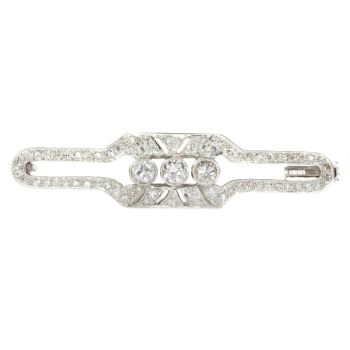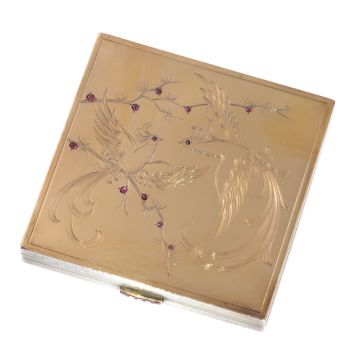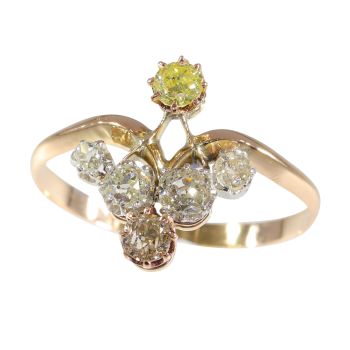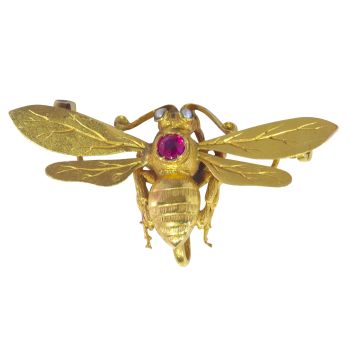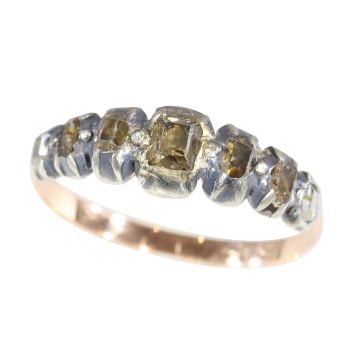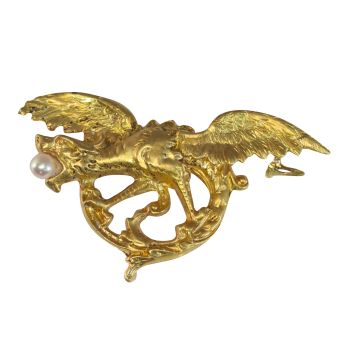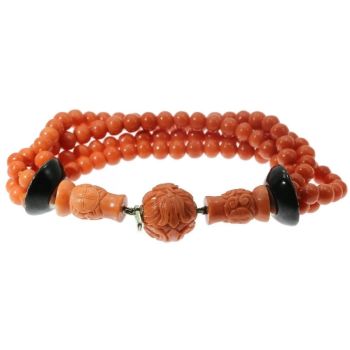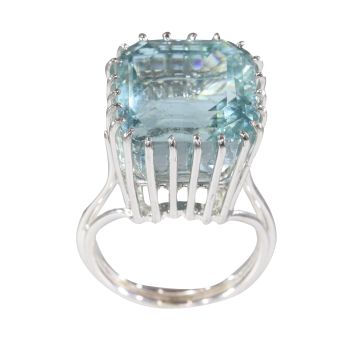Antieke Vlaamse diamanten hart hanger circa 1700 1700
Onbekende Kunstenaar
Adin Fine Antique Jewellery
- Over kunstwerk
Antique jewelry object group: pendant
Condition: very good condition
- (more info on our condition scale)
Country of origin: Although it does not carry any legible control marks we believe this to be of Belgian origin.
Style: Rococo - Rococo (less commonly roccoco) also referred to as "Late Baroque" is an 18th century style which developed as Baroque artists gave up their symmetry and became increasingly more ornate, florid, and playful. Rococo rooms were designed as totalworks of art with elegant and ornate furniture, small sculptures, ornamental mirrors, and tapestry complementing architecture, reliefs, and wall paintings. It was largely supplanted by the Neoclassic style. In 1835 the Dictionary of the French Academystated that the word Rococo "usually covers the kind of ornament, style and design associated with Louis XV's reign and the beginning of that of Louis XVI". It includes therefore, all types of art produced around the middle of the 18th century inFrance.
- See also: Rococoor more info on styles
Style specifics: Baroque is a style in art and decoration that developed shortly before 1600 and remained current in Europe until the emergence of the Rococo style c.1730. It was started in Italy, and spread to Germany, Austria, the Low Countries, and Spain andPortugal, with only a somewhat severely classical version being popular in France under Louis XIV. The style was a development of the Renaissance style and is characterized by lively, curved, and exuberant forms, by vigorous movement, and by richornament, based on classical sources, being symmetrical as distinguished from the asymmetry of the following Rococo style.
Period: ca. 1700
- (events & facts of this era, poetry of this era, fashion of this era)
Source of inspiration: Love and romance
Theme: Flemish Heart - One of the most peculiar and wide spread Flemish pieces of regional jewelry is a diamond heart pendant the so-called "Vlaams hart" (Dutch for “Flemish heart"). These hearts were fashionable in the 19th century and mostly made in gold backed silver (see also the silver on gold technique). A Flemish heart is a heart shaped field set with rose cut diamonds and/or senelles hanging under a crowning.
There are two sorts of crownings possible:
1) The crowing is a crown and then it is build up from horizontal, diamond embellished, tendrils that are resting on a smooth surfaced ajour cut band with flattened little rhombic bars. The tendrils from the top incline slightly over this ajour cut bandtowards the actual cross emphasizing the unity of the jewel.
2) The crowing as love trophy. A collection of four elements, a torch and quiver that are crossing each other, a bow that is horizontal mingled with them and all held together by a laurel. The slightly upwards direction of both ends of the bow refers to the St. Andrew's cross. Torch, quiver and bow are typical attributes to Amor (Eros) and the laurel refers to the triumph of love. This combination was already in use with the old Greek and Romans and later of course in the Renaissance and had a enormoussuccess in France in the Louis XVI period (1774-1793).
Material: Silver
- (more info on precious metals)
Technique: The rose cuts are set on foil. This is a special technique that was used to bring the lustre of the diamonds to its best quality.
Diamond(s): 38 rose cut diamonds and senailles. A senaille is a simplified rose cut diamond, a small diamond chip with perhaps a few polished facets. We do not have the weight of the rose cuts diamonds nor the senailles which is normal in our trade when it comes to rose cut diamonds and senailles.
- All diamonds we offer are screened by the IJGC - lab (www.ijgc-worldwide.com) for whether they are natural or synthetic, and all diamonds in this jewel are 100% guaranteed to be natural.
Birthstones: Diamond is the birthstone (or month stone) for April.
- (more info on birthstones)
Hallmarks: No trace.
- (more info on hallmarks)
Dimensions: height 4,70 cm (1,85 inch) - See picture with a ruler in cm and inches
Weight: 6,90 gram (4,44 dwt)
Adin Reference Nº: 20296-0349
Copyright photography: Adin, fine antique jewellery
jewelry with hearts, all love token jewelry, silver jewelry or jewelry with silver, jewelry with rose cut diamonds, jewelry with diamond, latest acquisitions,
antique jewelry, estate jewelry, vintage jewelry or modern jewelry
Jewelry with birthstones (or month stones) for:
January - February - March - April - May - June - July
August - September - October - November or December.
Additional information:
jewelry glossary - wall of fame - visit us in Antwerp - subscribe to our mailinglist.
What is antique jewelry? - What is estate jewelry? - What is vintage jewelry?
- Over kunstenaar
Het kan voorkomen dat een kunstenaar of maker onbekend is.
Voor sommige werken is het niet te bepalen door wie het gemaakt is of dat het is gemaakt door (een groep) ambachtslieden. Voorbeelden zijn beelden uit de Oudheid, meubels, spiegels of handtekeningen die vaak niet duidelijk of leesbaar zijn. Maar ook sommige werken zijn helemaal niet gesigneerd.
Ook kunt u de volgende beschrijving vinden:
•"Toegeschreven aan …." waarschijnlijk een werk van de kunstenaar maar niet zeker of gedeeltelijk
•“Atelier van ….” of werkplaats van” een werk uitgevoerd in het atelier of atelier van de kunstenaar, eventueel onder zijn toezicht
•“Cirkel van ….” een werk uit de periode van de kunstenaar die zijn invloed laat zien, nauw verbonden met de kunstenaar maar niet noodzakelijkerwijs zijn leerling
•“Stijl van ….” of “Volger van ….” een werk uitgevoerd in de stijl van de kunstenaar, maar niet noodzakelijk door een leerling; kan eigentijds of bijna eigentijds zijn
•“Wijze van ….” een werk in de stijl van de kunstenaar maar van latere datum
•"Na …." een kopie (van welke datum dan ook) van een werk van de kunstenaar
•“Getekend…”, “Gedateerd….” of “Ingeschreven” dan is het werk gesigneerd/ gedateerd/ ingeschreven door de kunstenaar. De toevoeging van een vraagteken duidt op een element van twijfel
•"Met handtekening ...", "Met datum ...", "Met opschrift..." of “Draagt signatuur/datum/opschrift” dan is de handtekening/datum/opschrift toegevoegd door iemand anders dan de kunstenaar
Bent u geïnteresseerd om dit kunstwerk te kopen?
Related artworks
Onbekende Kunstenaar
Medieval Maria with child sculpture1450
Prijs op aanvraagRemco van Leeuwen Antiquair
1 - 4 / 12Onbekende Kunstenaar
A Surinam-themed Amsterdam long-case clock1746 - 1756
Prijs op aanvraagZebregs & Röell - Fine Art - Antiques
 Gecureerd door
Gecureerd doorGallerease Magazine
1 - 4 / 13- 1 - 4 / 24
- 1 - 4 / 4
- 1 - 4 / 24
- 1 - 4 / 12

